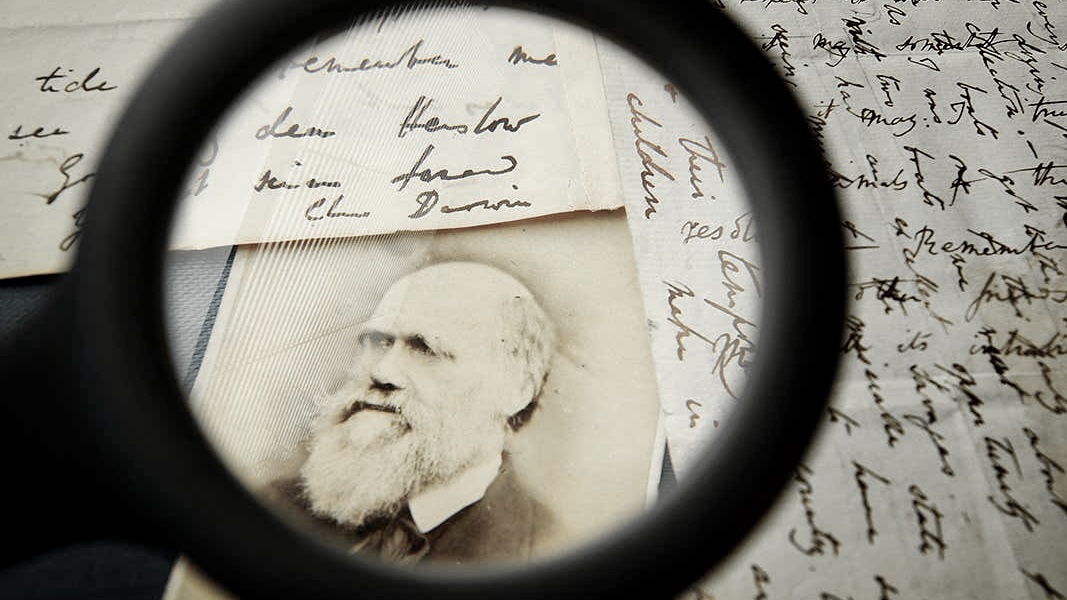A shocking new study has confirmed exactly what we’d expect starting with the Bible (and what creation scientists have been saying for decades)—chimpanzee DNA is not 98–99% identical to human DNA. Okay, so that’s not actually shocking to us. It’s expected when you start with the right worldview.
Now, the headline for the paper in Nature is rather bland: “Complete sequencing of ape genomes.” They should have titled it: “Evolutionary Ideas Wrong for Decades, Humans and Chimps Vastly Different,” but they likely don’t want to draw attention to the false narrative they’ve fed the public! In fact, they don’t even clearly acknowledge their evolutionarily unexpected findings in the paper!
What they did in this study was provide complete sequences for six living ape species, including chimpanzees, bonobos, two species of orangutans, gorillas, and siamangs (a gibbon species). And what’s unique about this study, according to Evolution News, is that:
This team of researchers has published “complete” sequences of ape genomes that were created ‘from scratch’ rather than using the human genome as a template. As a result, for the first time we can attempt a much more accurate assessment of the true degree of difference between the human and chimp genomes.
Many of these genomic studies assume common ancestry. . . and then use the results to prove common ancestry. It’s circular reasoning. So what did they find when they did actual observational science, rather than evolutionary storytelling? Well, they found what creation scientists have also been finding in their research: human and chimp DNA is not that similar.
From Evolution News (emphasis original):
- At least 12.5 percent and possibly up to 13.3 percent of the chimp and human genomes represent a “gap difference” between the two genomes. That means there’s a “gap” in one genome compared to the other, often where they are so different, they cannot even be aligned.
- There are also significant alignable sections of the two genomes that show “short nucleotide variations” which differ by only about 1.5 percent. We can add this difference to the “gap difference,” and calculate a 14 percent to 14.9 percent total difference between human and chimp genomes. This means that the actual difference between human and chimp DNA is 14 times greater than the often-quoted 1 percent statistic.It’s true that large portions of the human genome are still only about 1.5 percent genetically different from the chimp genome. . . But the new data reveal just how little this one fact tells us about the overall picture.
And, just in case 14.9% doesn’t sound like much to you, consider that represents hundreds of millions of differences and evolutionists only have 6–8 million years in their worldview to account for that vast number of differences.
Dr. Georgia Purdom, a geneticist and our director of research, shared this with me about the new study:
What most people don’t realize is that the oft-quoted 1% difference between human and chimp genomes only represented one type of difference—substitutions in aligned regions (single base differences in areas of high similarity within the genomes). Why only count this type of difference and not the others? Because of the evidence needed to fit the imagined evolutionary timeline of six–eight million years since humans and chimps diverged from a common ancestor. This number of differences was “reasonable” in that time frame. But there were other known differences like gaps, copy number variations, and unaligned regions. If all the differences were counted, however, either the shared ancestor would have to have been a lot older or humans and chimps couldn’t have shared a common ancestor. Both explanations are untenable from an evolutionary worldview, so the evidence is made to “fit” their ideas instead.
This new research is even more problematic for evolutionists because it’s based off “true” ape genomes. Ones that were created, not using the human genome as a template, but rather from scratch. They found large unaligned regions resulting in more than a 12–13% difference when the true chimp genome was compared to the human genome. Add that to the 1–2% difference they counted before, and you end up with a nearly 15% difference! No evolutionary geneticist can account for that many differences in six–eight million years. Even if they could, the differences (really mutations) would not result in an apelike creature evolving into a human since mutations don’t add genetic information, they degrade and damage. The evidence instead confirms the biblical account of creation—that God created the ape kind and humankind separate and unique.
This is a massive blow to the evolutionary worldview as the supposed similarity between chimp and human DNA is touted as one of the strongest “proofs” of evolution—and it’s found to be completely false when you actually do observational science without the evolutionary assumptions! Maybe that’s why Nature didn’t make a big deal about the researchers’ stunning findings.
Once again, observational science confirms the Bible. Chimps and humans aren’t related. The ape kind was created by God as a separate and distinct kind, as were humans. We are not “hairless apes,” chimpanzee “cousins,” or just animals in any other sense. Rather, we are our own unique kind made in the very image of God.

